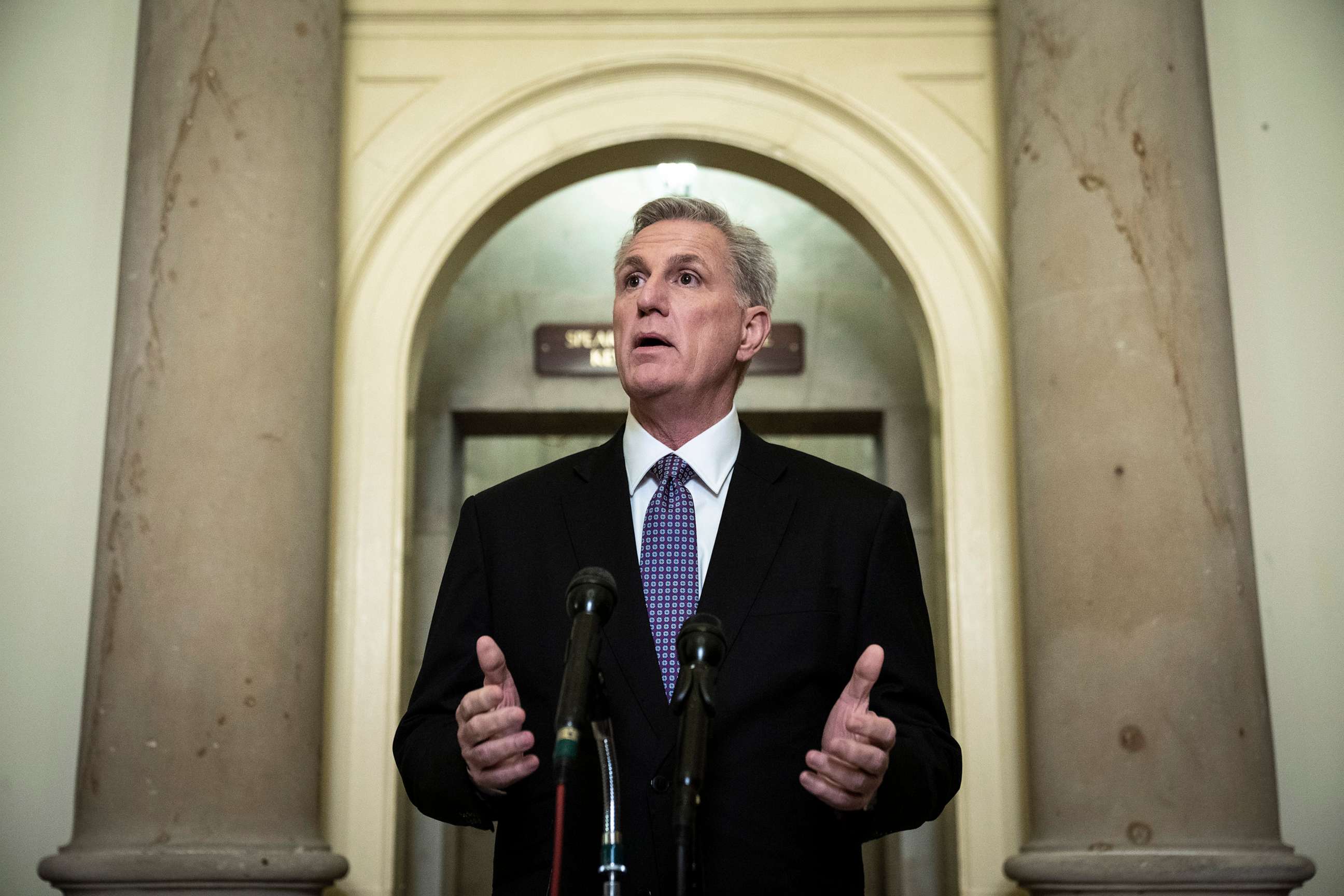Parents would have new power over their kids' education under House GOP bill
A major teachers' union is pushing back on the proposal.
House Speaker Kevin McCarthy and House Republicans on Thursday introduced The Parents Bill of Rights, which they say would give parents more insight and power into their children's education.
According to a breakdown of the bill from Rep. Julia Letlow, R-La., school districts would be publicly required to post curriculum information, provide parents with a copy of revisions to state education standards, provide parents with the list of books and reading materials available in the library and more.
"You have a say in your kids' education, not government and not telling you what to do," McCarthy said in his remarks.
Activists, parents and families from across the country gathered in the Rayburn Room to tout the new proposal alongside McCarthy, the House Republican Conference chair, Elise Stefanik, House Education and the Workforce Committee Chairwoman Virginia Foxx and others.
According to Letlow, parents must also be allowed to address their local school board on issues impacting their children's education and must be given a say when schools update privacy policies while schools should be encouraged to consider community feedback in decision making.
The bill would require parental consent before medical exams take place at school, "including mental health or substance use disorder screenings," and inform parents of violent activity at school.
"We are going to fight to make sure that our voices are heard, that we have a right to have a seat at the table when it comes to our children's education," Letlow said Thursday.
A similar bill in 2021, from Sen. Josh Hawley, R-Mo., failed to move forward in the previous Congress.
The new bill has 73 republican co-sponsors and the GOP-led House "will pass" it later this year, Stefanik said.
"I couldn't imagine someone would oppose a Parents Bill of Rights," McCarthy told ABC News after the event, adding, "Parent gets to guarantee[d] to know what their children are being taught, parent gets to know what their money is being spent on. ... More importantly, the parents get to know if there is any activity on campus that could harm their child or not."
However, the debate over what is taught in public school classrooms and how has indeed become controversial and education has been a hot-button issue for the GOP since the COVID-19 pandemic pushed schooling into the home during widespread shutdowns.

In his House speaker acceptance speech in January, McCarthy said he would help pass bills to address what he claimed was "woke indoctrination in our schools."
It's a sentiment applauded and repeated by conservative legislators targeting education, though Democrats have criticized such efforts as discriminatory and anti-free speech.
Across the country, Republican lawmakers have sought to restrict certain subjects from classrooms as well as allow some parents to have more control over their child's education and access to certain material.
In recent years, schools and libraries have been bombarded with a record number of calls for book banning from conservative groups that have primarily affected literature written by or about people of color or LGBTQ people, according to the American Library Association, which tracks book ban attempts.

Republican-backed legislation in several states has also sought to restrict race-related or LGBTQ-related content in schools, some of which has been criticized by educators and students and has pushed some teachers from schools.
In Florida, more than one million books are under review due to recent legislation banning certain race- and LGBTQ-related content in schools.
The National Education Association, the largest labor union in the U.S., which represents educators and school faculty, said in a statement that the new education bill in the House is driving a wedge between educators and parents who "continue to be partners, working to ensure all students, no matter their race or background, have the opportunity to succeed."
"McCarthy would rather seek to stoke racial and social division and distract us from what will really help our students thrive: an inspiring, inclusive, and age-appropriate curriculum that prepares each and every one of them for their future," NEA President Becky Pringle said in a statement.
She continued, "Parents and voters agree that elected leaders should be focused on getting students the individualized support they need, keeping guns out of schools, and addressing educator shortages."




